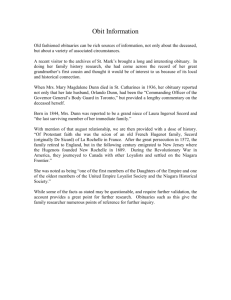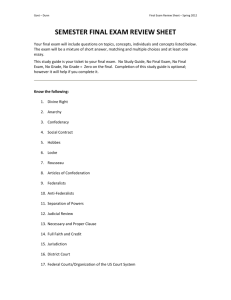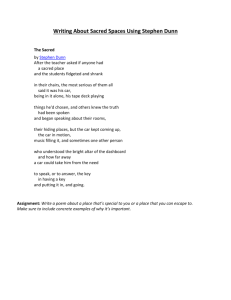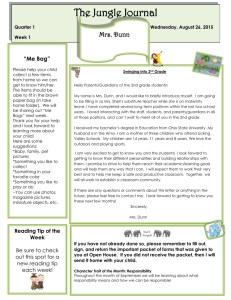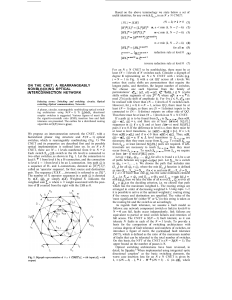ETHICS CASE STUDY: HEWLETT
advertisement
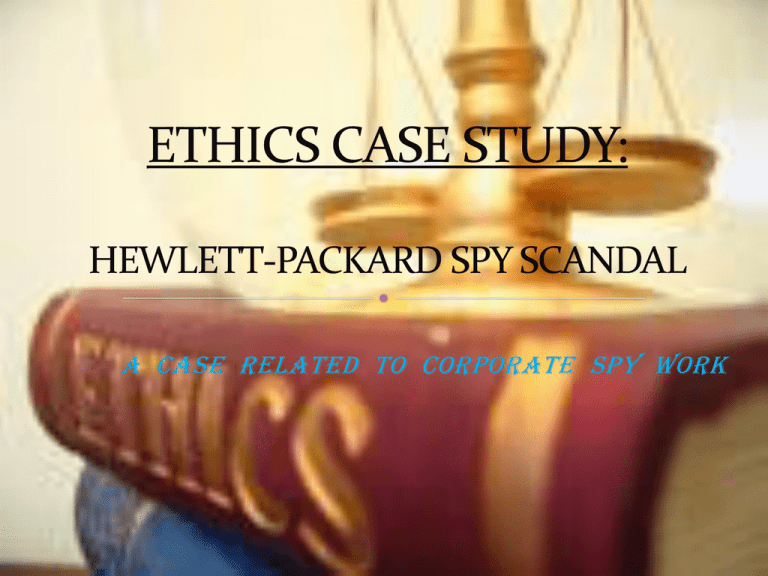
A CASE RELATED TO CORPORATE SPY WORK Dates back to 6th century. Unethical and illegal method of collecting information related to* Corporate strategies. * New product development/launch plans. * Target markets. * Customer and supplier plans. * Merger and acquisition plans. * Pricing, advertising, packaging etc. Agents do not abide by any legal or ethical guidelines , & do anything to get competitive information. It includes dumpster diving, social engineering, interviewing disgruntled employees, bugging offices , hacking computer systems and telephone lines. Type : Public Founder(s): Bill Hewlett & David Packard Headquarters: Palo Alto, CA, United States Area served: Worldwide Largest technology company in the world Industry: Computer Systems, Computer Peripherals, Computer Software, Consulting IT Services Products: Computer Monitors, Digital Cameras, Indigo Digital Press, Networking, Personal Computers and Laptops, Personal Digital Assistants, Printers, Scanners, Servers, Storage Televisions. Operating income: US$ 10.473 billion (2008) Revenue: US$ 118.364 billion (2008) Net income: US$ 10.473 billion (2008) Total assets: US$ 113.331 billion (2008) Total equity: US$ 38.942 billion (2008) Employees: 321,000 (2008) PERSONS INVOLVED 1. Patricia Dunn, Chairwoman, HP. 2. George Keyworth, Board Member. 3. Ann Baskins, Head Attorney. BACKGROUND HP found that some of its highly confidential data regarding HP’s long term strategy leaked during January, 2006. On September 5, 2006, Newsweek published a story……. “Chairwoman of HP, Patricia Dunn, has hired a team of independent electronicsecurity experts who spied on HP board members and several journalists, to determine the source of a leak of confidential details regarding HP's longterm strategy in January, 2006.” TECHNIQUES USED BY SECURITY EXPERTS: 1. Pre-texting to obtain call records of HP board members and nine journalists, including reporters for CNET, the New York Times and the Wall Street Journal. 2. Investigators dressed as cleaners and entered inside the San Francisco offices of The Wall Street Journal and CNET. RESULT OF SPYING: ADVANTAGE: Board member George Keyworth was found guilty for leakage of confidential data. On September 12, 2006 Keyworth resigned from the board . RESULT OF SPYING: DISADVANTAGE: On September 22, 2006,Dunn was forced to resign. On September 28, 2006, Ann Baskins, HP's general counsel (head attorney) resigned hours before she was to appear as a witness for the case. Faced investigation by the government On December 7, 2006 hp paid $14.5 Million to settle civil charges brought by the California Attorney General. UNETHICAL METHODS USED……. Lies Fraud Trapping of private telephone lines Misrepresentation RIGHTS VIOLATED…… Right to privacy. Right to free speech. Right to private property. Right to confidentiality. 1. Never expose your internal network to outsiders 2. Make sure all storage areas are secure 3. Ensure that data at rest is properly protected 4. Protect against data deletion and data loss 5. Protection from data tampering 6. Regular auditing, random and regular monitoring
